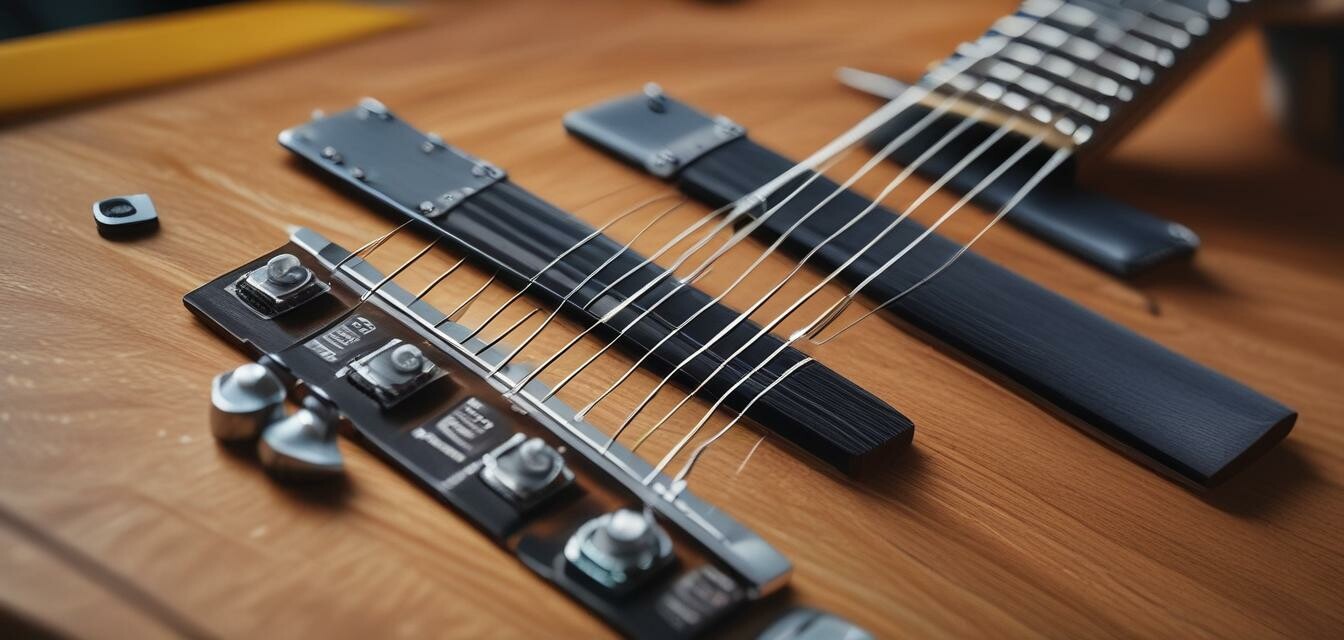
Essential Tips for Caring for Your Electric Guitar
Key Takeaways
- Regular cleaning is essential for maintaining the appearance and sound quality of your electric guitar.
- Changing strings frequently helps to ensure a better sound and playability.
- Proper setup and maintenance can significantly enhance the guitar's performance.
Electric guitars are wonderful instruments that allow musicians to express themselves with a unique voice. However, like any musical instrument, they require care and maintenance to ensure they perform at their best. In this article, we will explore vital maintenance tips, including cleaning routines, string care, and necessary setup modifications. With these tips, you can keep your electric guitar in top-notch condition for years to come.
1. Regular Cleaning Routine
Keeping your electric guitar clean is essential for both its aesthetic appeal and its functionality. Dust, sweat, and grime can accumulate over time, affecting the sound and feel of your instrument. Here’s a simple cleaning routine:
| Task | Frequency | Tools Needed |
|---|---|---|
| Wipe down the body | After every use | Microfiber cloth |
| Clean the fretboard | Every 1-2 weeks | Specialized fretboard cleaner or lemon oil |
| Polish the body | Monthly | Guitar polish and cloth |
| Check for dust in electronics | Every 3 months | Compressed air |
Cleaning the Body
To clean the body of the guitar, use a microfiber cloth to gently wipe away dust and fingerprints. Avoid using abrasive materials, as they can scratch the surface.
Fretboard Maintenance
The fretboard needs special care as it tends to collect grime. Use a fretboard cleaner or lemon oil, applying it with a soft cloth and follow up with a thorough wipe down.
2. String Care and Maintenance
Strings are vital for producing sound on an electric guitar. Here are some essential tips for maintaining your strings:
- Change strings regularly: This prevents loss of tone and maintains playability.
- Wipe strings after playing: Removes sweat and dirt, extending string life.
- Consider coated strings: These resist dirt and grime better than traditional strings.
3. Setting Up Your Electric Guitar
A well-setup guitar is easier to play and sounds better. Some tips for setting up your electric guitar include:
| Setup Task | Description | Recommended Frequency |
|---|---|---|
| Adjust Truss Rod | Keep neck relief in check for optimal action. | Every 6 months |
| Action Adjustment | Set string height for comfort and playability. | Every 6 months |
| Pickup Height | Ensure pickups are at the right distance from strings. | Annually |
Truss Rod Adjustments
The truss rod controls the curvature of your neck. Adjust it if you notice the string action is too high or too low. Make small adjustments and monitor the changes.
Action Adjustment
String action impacts playability significantly. It’s essential to adjust it to fit your playing style, ensuring comfort while playing.
4. Storing Your Guitar Properly
How you store your electric guitar is just as important as how you care for it:
- Use a case: Store your guitar in a hard case or gig bag to protect it from dust or accidental damage.
- Avoid extreme temperatures: Keep your guitar away from direct sunlight and areas with high humidity.
- Consider a guitar stand: If on display, use a stand that supports both the neck and the body, preventing warping.
5. Know When to Seek Professional Help
Sometimes, the maintenance required is beyond basic care. Here are situations where you should consider seeking a professional:
- Persistent tuning issues despite proper maintenance.
- Buzzing sounds that cannot be fixed with adjustments.
- Cracks or structural damage to the body or neck.
Pros
- Maintained guitars produce better sound quality.
- Regular care prolongs the lifespan of the instrument.
- Increased value when well maintained.
Cons
- Initial learning curve for maintenance procedures.
- Costs associated with cleaning products and tools.
Conclusion
Taking care of your electric guitar not only enhances its performance but also ensures its longevity. With regular cleaning, proper string maintenance, and appropriate storage, you can keep your instrument sounding great for years. Always feel free to reach out for help, and for more tips, check out our other resources on instrument care, or learn more about accessories for your guitar.